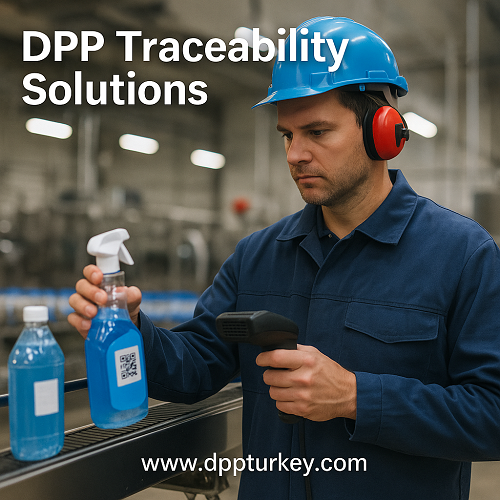Eu Trade Regulations
Eu Trade Regulations define the legal framework and standards that companies must follow to export products into the European Union. Compliance with Eu Trade Regulations ensures that goods are legally certified, traceable, and meet safety, quality, and environmental requirements. Companies exporting from Turkey or other countries need to understand the operational and strategic importance of Eu Trade Regulations to minimize risks, streamline customs processes, and maintain market credibility. Our firm provides comprehensive consultancy, system integration, and operational support to help businesses fully comply with Eu Trade Regulations, with extensive experience across multiple sectors.
Legal Significance of Eu Trade Regulations
A primary reason for adhering to Eu Trade Regulations is legal compliance. The EU imposes strict standards on imported products, including documentation of origin, certifications, safety testing, and environmental compliance. Following Eu Trade Regulations ensures that exporters meet these standards, reducing the risk of fines, shipment delays, or market rejection. Compliance with Eu Trade Regulations demonstrates accountability and reliability to regulatory authorities, importers, and international partners.
Operational Benefits of Eu Trade Regulations
Implementing Eu Trade Regulations enhances operational efficiency by providing structured procedures for documentation, customs compliance, and product traceability. Companies gain real-time visibility over shipments, inventory, and production, ensuring that all goods are properly prepared for export. Integration with ERP and logistics systems allows automated reporting, reducing manual errors and streamlining operations. Adhering to Eu Trade Regulations enables companies to optimize resource allocation, production schedules, and supply chain management while maintaining full compliance.
Commercial Advantages of Eu Trade Regulations
From a commercial perspective, Eu Trade Regulations strengthen market positioning and customer confidence. Verified compliance with EU standards allows exporters to demonstrate product authenticity, quality, and regulatory adherence to importers and partners. This transparency accelerates customs clearance, reduces operational delays, and enhances brand reputation. Companies that follow Eu Trade Regulations differentiate themselves from competitors, build trust with buyers, and gain access to premium or regulated markets requiring verified compliance.
Key Components of Eu Trade Regulations
Understanding Eu Trade Regulations involves several critical components:
-
Certification and Documentation: Accurate records of all quality, safety, and regulatory approvals.
-
Product Identification and Traceability: Assigning QR codes, RFID tags, or serial numbers to ensure traceable products.
-
Supply Chain Transparency: Monitoring transportation, storage, and distribution to maintain accountability.
-
Environmental and Sustainability Compliance: Meeting EU environmental standards, including material composition and recycling information.
-
Quality Assurance: Ensuring products consistently meet EU safety and operational standards.
Integrating these components ensures that compliance with Eu Trade Regulations provides operational, regulatory, and commercial benefits.
Implementation Steps for Eu Trade Regulations
Successfully adhering to Eu Trade Regulations requires a systematic approach:
-
Assess Regulatory Requirements: Identify relevant EU trade standards, certifications, and documentation obligations.
-
Data Collection and Verification: Gather product information, production processes, certifications, and supply chain records.
-
System Integration: Implement software platforms compatible with ERP, logistics, and warehouse systems to manage compliance efficiently.
-
Product Identification: Assign unique codes or digital IDs for traceability and verification.
-
Verification and Quality Assurance: Ensure that all product data is accurate, complete, and meets EU standards.
-
Staff Training: Educate employees on trade procedures, compliance requirements, and system usage.
-
Continuous Monitoring and Updates: Maintain ongoing oversight to ensure compliance and operational efficiency.
These steps ensure that companies fully meet Eu Trade Regulations and operate efficiently in European markets.
Technological Integration for Eu Trade Regulations
Advanced technologies are essential to comply with Eu Trade Regulations. QR codes, RFID, IoT-enabled monitoring, and blockchain verification allow secure, real-time tracking of products and regulatory documentation. Integration with ERP and logistics platforms ensures centralized, accurate, and accessible data. Companies adopting these technologies in line with Eu Trade Regulations improve operational efficiency, reduce errors, and maintain compliance across the supply chain.
Impact on Turkish Exporters
For Turkish exporters, complying with Eu Trade Regulations provides a strategic advantage. Verified product data facilitates customs clearance, reduces regulatory risk, and builds credibility with importers and authorities. Companies implementing Eu Trade Regulations demonstrate transparency, operational reliability, and adherence to EU standards, supporting business expansion and strengthening market presence. Compliance also enables exporters to meet sustainability goals and maintain competitiveness in global trade.
Enhancing Supply Chain Transparency
A key benefit of Eu Trade Regulations is supply chain visibility. Exporters can monitor products from production to delivery, track batches, and verify compliance at every stage. Transparency allows proactive issue resolution, optimized logistics, and efficient inventory management. Fully implemented Eu Trade Regulations ensure traceable, verifiable, and compliant operations across the entire supply chain.
Customer Confidence and Brand Reputation
Adhering to Eu Trade Regulations increases customer trust. Verified compliance allows buyers to confirm authenticity, regulatory adherence, and product quality, fostering confidence and long-term relationships. Companies following Eu Trade Regulations demonstrate accountability, operational excellence, and a commitment to regulatory and sustainability standards, enhancing brand reputation and market credibility.
Operational Risk Mitigation
Complying with Eu Trade Regulations reduces operational and legal risks. Real-time monitoring, automated alerts, and verified documentation enable rapid identification of defects, non-compliance, or recall needs. Companies leveraging Eu Trade Regulations maintain a resilient, transparent, and compliant supply chain, minimizing financial, legal, and reputational risks.
Strategic Advantages of Eu Trade Regulations
Organizations adhering to Eu Trade Regulations gain long-term strategic benefits. Verified product data supports production planning, inventory management, and responsive supply chain operations. Companies can adapt quickly to regulatory updates, market demands, or quality issues. By leveraging Eu Trade Regulations, businesses enhance operational performance, ensure compliance, and strengthen competitiveness, delivering measurable commercial and operational value.

